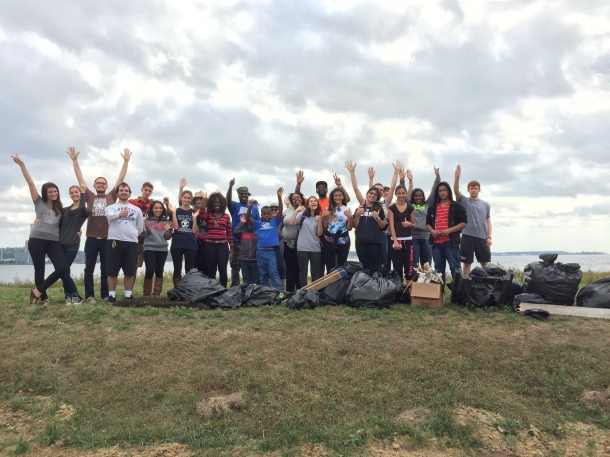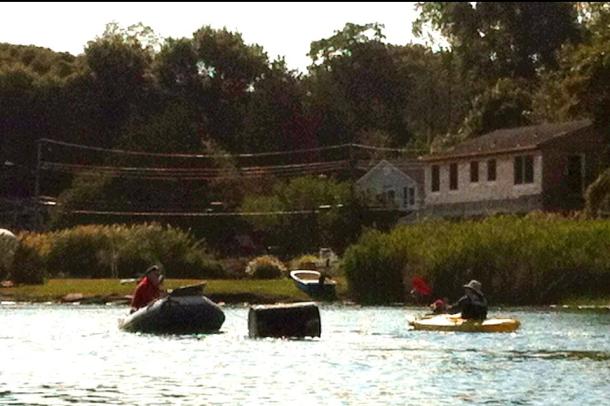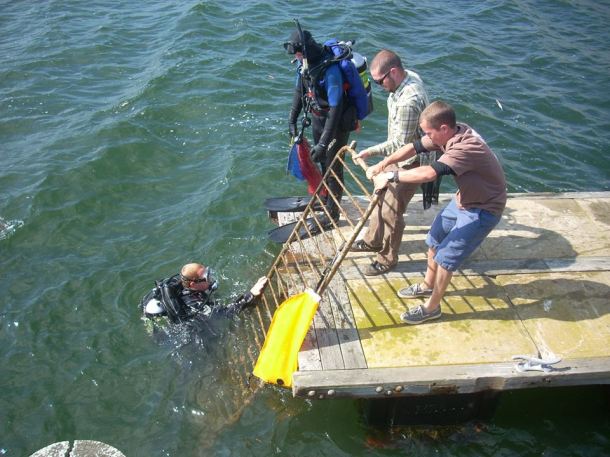You can still join a cleanup near you! Check out our calendar for more info.
For the last month and a half, citizen groups, businesses, bird watchers, fishermen, scuba divers, students, and kayakers have been cleaning up garbage from Connecticut’s beaches, islands, and rivers as part of the annual International Coastal Cleanup (ICC). Save the Sound, the Connecticut coordinator for the ICC, has worked with cleanup captains to organize 44 cleanups across the state so far this fall, and more are coming during the rest of October. Interested volunteers should check our calendar for listings of cleanups and register with the assigned cleanup captain.

Kayak and Scuba Cleanups Come Up With Big Finds
Each year the Friends of Farm River in East Haven/Branford collect a lot of garbage in the salt marshes and banks of the Farm River. This year they hauled in several hundred pounds, and one kayaker found an empty oil drum and it was towed to the collection site.
Ryan Patrylak again led an underwater cleanup of 15 divers from the Southeast Connecticut Dive Club, and they scoured the bottom of New London Harbor off of the Custom House Pier. In the picture below, divers hoist a large rusty gate to helpers on the dock.
About ICC
ICC, created by the Ocean Conservancy, is now in its 28th year and boasts participation in all 55 U.S. states and territories and 100 countries around the world. It is a unique event in that volunteers tally up all garbage they pick up on data cards, which we send to Ocean Conservancy for analysis. They use this information to track trends in marine debris and help stop it at its source. Last year, 648,015 volunteers in 92 countries picked up more than 12.3 million pounds of trash worldwide. In 2013, Save the Sound brought together over 1,500 volunteers who removed nearly 8,800 pounds of trash from 44 Connecticut beaches and riverfronts across the state.
Our Partners Make It Possible
We would like to thank the National Fish and Wildlife Foundation for their generous support of Save the Sound’s coastal cleanup program this year.
The National Fish and Wildlife Foundation NFWF manages the Long Island Sound Futures Fund in partnership with the Long Island Sound Study through U.S. EPA’s Long Island Sound Office. Major funding for the program is provided by the U.S. Environmental Protection Agency, Long Island Sound Study, U.S. Fish and Wildlife Service, and USDA Natural Resources Conservation Service.
Questions? You can email Chris Cryder (ccryder@savethesound.org) for more information.


